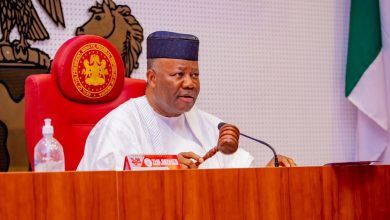South Korean Police Raid President Yoon’s Office Amid Martial Law Investigation

South Korean police conducted a dramatic raid on President Yoon Suk Yeol’s office on Wednesday, as the investigation into his controversial declaration of martial law intensifies.
This comes amid rising tensions over the military’s involvement in a failed attempt to prevent lawmakers from voting down the martial law decree.
In a related development, former Defence Minister Kim Yong-hyun, who is at the center of the investigation, attempted suicide shortly before his formal arrest on charges related to the martial law events. Authorities confirmed that Kim, who had been in custody since Sunday, attempted to take his life just before midnight on Tuesday, though he was reported to be in stable health by Wednesday.
The raids on the presidential office, the National Police Agency, the Seoul Metropolitan Police Agency, and the National Assembly Security Service were part of a broadening investigation into the insurrection charges related to the December 3 events, where troops and helicopters were sent to the parliament in a failed attempt to stop lawmakers from rejecting martial law. This move was part of an effort to solidify Yoon’s grip on power amid increasing opposition.
Kim, who faces accusations of “engaging in critical duties during an insurrection” and “abuse of authority to obstruct the exercise of rights,” stated through his lawyers that he took full responsibility for the actions and that his subordinates were merely carrying out orders. Kim’s arrest follows the imposition of a travel ban on him, former Interior Minister, and the general overseeing the martial law operation.
The situation has sparked political turmoil, with Yoon under a travel ban as part of an ongoing insurrection investigation into his inner circle. Two senior police officials, Cho Ji-ho and Kim Bong-sik, were also arrested early Wednesday.
The political crisis has drawn sharp criticism from North Korea, with state media labeling Yoon’s actions as “chaos” and denouncing his use of “fascist dictatorship” tactics. Yoon had justified the martial law decree, citing national security concerns, particularly from North Korea’s “communist forces” and “anti-state elements.”
The martial law incident and its aftermath have deeply divided South Korea, with public support for Yoon at an all-time low. Protests demanding his resignation have continued, with significant unrest in the streets, despite his survival of an impeachment motion last Saturday. Within his own People Power Party (PPP), there is growing pressure for Yoon to resign, with a proposal for him to step down by February or March, followed by elections in April or May. However, the proposal has yet to be formally adopted.
The drama is far from over, with another potential impeachment motion on the horizon. The motion requires only eight defectors from the ruling party to reach the two-thirds majority needed to proceed, and some PPP members have already signaled their support for the impeachment effort.





